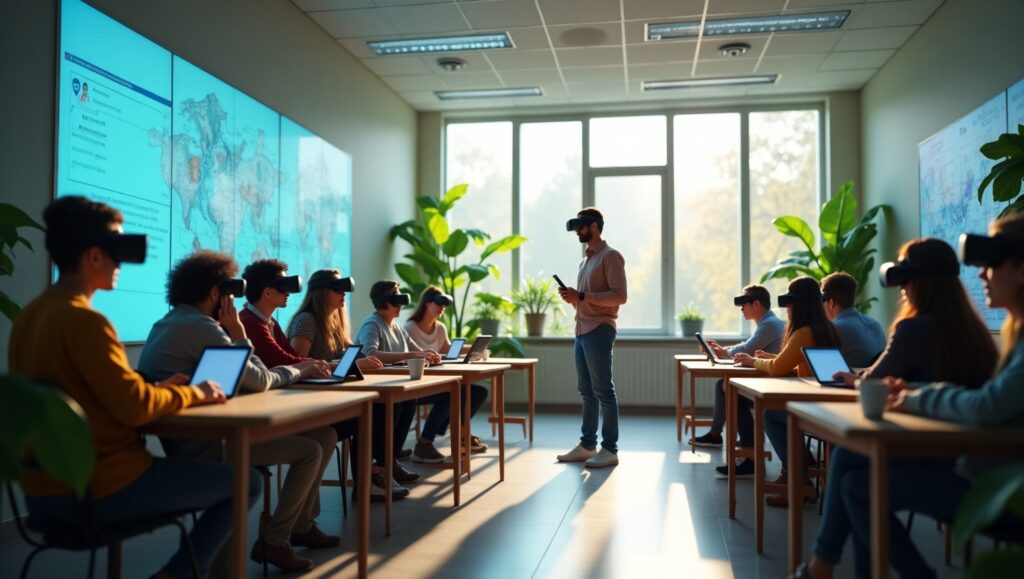The future of education online. By 2025 main trends will turn into a new era, making experiences that are more effective, interesting, and tailored. This exploration digs deep into top online education trends shaping student learning.
I. AI & Customized Learning
A. Hyper-Personalization: AI predicts paths to learning for adaptive feedback and evidence by analyzing emotional reactions and learning styles.
B. AI-Powered Tutoring: AI tutors deliver immediate feedback, pinpoint knowledge gaps, and offer customized assistance. Example: Socratic by Google.

II. Experiential Learning & Immersion Technologies
A. Integration of the Metaverse: VR and AR produce engaging learning environments that encourage active engagement. Example: Metaverse in Education.
B. Experiential Learning: Students participate in real-world situations and virtual simulations. Example: Coursera
III. Skill Development & Agile Learning
A. Nano-Degrees and Micro-Credentials: specialized education for highly sought-after abilities that provide quicker career paths.
B. Competency-Based Education: Emphasis on proving mastery of particular abilities and information.
IIV. Increased Involvement & CIII. Skill Development & Agile Learning
A. Nano-Degrees and Micro-Credentials: specialized education for highly sought-after abilities that provide quicker career paths.
B. Competency-Based Education: Emphasis on proving mastery of particular abilities and information.
Collaboration
A. Gamification 2.0: Advanced gaming features for group problem-solving and customized learning missions.
B. Learning Communities: Peer-to-peer learning, group projects, and mentoring are made easier by online platforms.
V. Accessibility & Flexibility
A. Mobile-First Learning: Education is made easier to obtain through offline access and optimized mobile platforms.
B. Combined Learning: For more learning, online and in-person training are combined.

VI. Data-Driven Insights & Analytics
A. Learning Analytics: Data-driven instruction using real-time insights into student engagement and progress. Example: YouTube Learning.
B. Data-Driven Instruction: Teachers utilize data to enhance their teaching methods and tailor support.
VII. Evolving Learning Landscape
A. Formal and Informal Learning Converge: A variety of learning resources are curated by online platforms.
B. Human Skills Emphasis: Online learning includes instruction in critical thinking, teamwork, and communication.

I have 20 years of experience in higher education leadership. I held prominent academic positions at various institutions, concentrating on key areas such as student learning, faculty development, curriculum design, and institutional accreditation. As the Team Chair for eleven accreditation evaluations with the Middle States Commission on Higher Education, I have successfully directed thorough assessments that uphold academic standards and regulatory requirements. Furthermore, I have provided consulting services to major international institutions, offering guidance on accreditation processes, strategic planning, and governance frameworks. Her extensive knowledge in assessment, budget management, and collective bargaining and her commitment to academic excellence and institutional effectiveness make her a passionate champion for shared governance in higher education.
